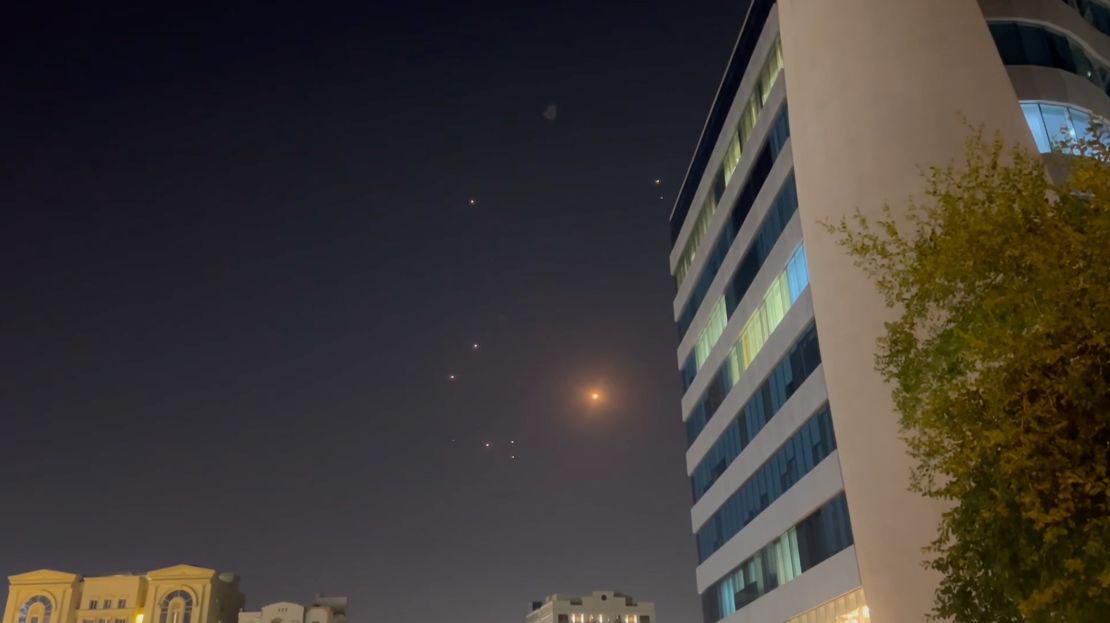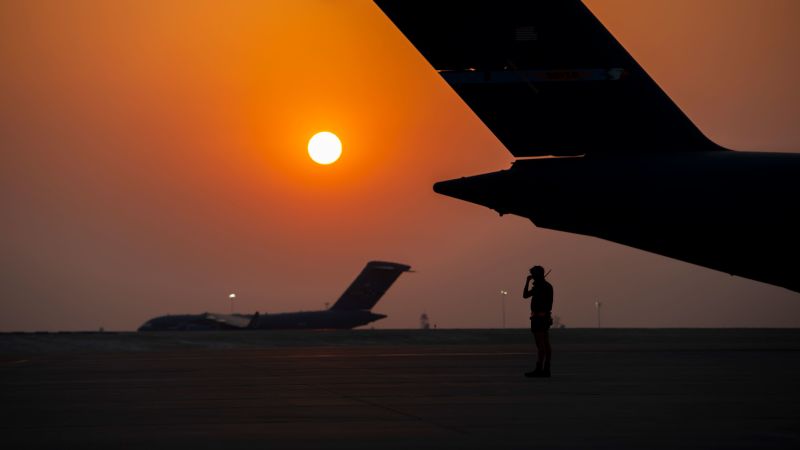CNN
—
Top Qatari officials had been meeting with the country’s prime minister on Monday afternoon to find ways of de-escalating a conflict between Iran and Israel, when defense ministry personnel called to warn of incoming Iranian missiles.
The attack, the first on the Gulf, caught them by surprise, according to Qatar’s foreign ministry spokesperson Majed Al-Ansari, who recalls feeling the prime minister’s residence shake with the interceptions that quickly followed overhead.
Unease had gripped the Gulf Arab states that morning. The glitzy, oil-rich capitals feared a worst-case scenario: an Iranian missile strike shattering their image of stability after 12 days of war between Israel and Iran, which had culminated in a series of US strikes on Iranian nuclear facilities.
Bahrain, where the US Naval Command is located, told residents not to use main roads and Kuwait, which hosts several US military bases, activated shelters in ministerial complexes. In nearby Dubai and Abu Dhabi, some residents were booking early flights out and others stocking up on supplies.
In Doha, nervous residents were on high alert. US and UK citizens in the country had been told to seek shelter and American military personnel had been evacuated from the US-run Al Udeid Base.
Qatar’s early warning military radar system, one of the most advanced in the region, and intelligence gathered indicated that Iranian missile batteries had moved toward Qatar earlier that day, the spokesperson said – but nothing was certain until shortly before the strikes.
“It could’ve been misdirected to lead us away from the actual target. There was still a lot of targets in the region…but towards the end it was very clear, their missile systems were hot and we had a very clear idea an hour before the attack, Al Udeid Base was going to be targeted,” a Qatari official with knowledge of defense operations said.
Around 7 p.m. local time, Qatari officials were informed by their military that Iran’s missiles were airborne and heading towards Al Udeid base, Al-Ansari said.
Qatar’s armed forces deployed 300 service members and activated multiple Qatari Patriot anti-air missile batteries across two sites to counter the 19 Iranian missiles roaring toward the country, according to Al-Ansari. US President Donald Trump has said that 14 missiles were fired from Iran.
Qatari forces coordinated closely with the US, but the operation was “Qatari led,” Al- Ansari told CNN.
Seven missiles were intercepted over the Persian Gulf before reaching Qatari soil, he said. Another 11 were intercepted over Doha without causing damage and one landed in an uninhibited area of the base causing minimal damage.

According to Trump, Iran had given the US early notice ahead of the attack. While Doha received intel from Washington, it did not receive any warning directly from the Iranians, according to Al-Ansari – though officials were well aware that the US bases in the region could be targeted.
“The Iranians told us months ago … if there was an attack by the US on Iranian soil that would make bases hosting American forces in the region legitimate targets,” Al-Ansari said.
Iran’s Foreign Minister Abbas Araghchi said that warning was reiterated to his Gulf counterparts in an Istanbul meeting a day before Iranian strikes on Qatar.
Iran’s National Security Council said after the intercepted attack that its strikes had posed “no dangerous aspect to our friendly and brotherly country of Qatar and its noble people.”
Still, Al-Ansari rejects speculation that Qatar – given its working relationship with Tehran – might have given a greenlight for the strikes in order to create an off-ramp for regional escalation.
“We do not take it lightly for our country to be attacked by missiles from any side and we would never do that as part of political posturing or a game in the region,” he said.
“We would not put our people in the line of danger. I would not put my daughter under missiles coming from the sky just to come out with a political outcome. This was a complete surprise to us,” Ansari said.
In the moments after the attack, Trump called Qatar’s Emir Tamim bin Hamad Al Thani telling him the Israelis were willing to agree to a ceasefire and asked him to do the same for the Iranians, according to Al-Ansari.
“As we were discussing how to retaliate to this attack … this is when we get a call from the United States that a possible ceasefire, a possible avenue to regional security had opened,” Ansari said.
Doha’s role as mediator quickly became key in the aftermath of the strikes. Qatar’s chief negotiator Mohammed bin Abdulaziz Al-Khulaifi spoke to the Iranians while the Qatari Prime Minister Mohammed bin Abdulrahman Al Thani was speaking to US Vice President JD Vance. Soon, “we were able to secure a deal,” Al-Ansaris says – and in the nick of time.
“All options were on the table that night … we could have immediately retaliated or pulled back and say we’re not talking to a country that sent 19 missiles our way. But we also realized that was a moment that could create momentum for peace in a region that hasn’t been there for two years now,” Ansari said.
Shortly after, Trump declared on social media that a ceasefire between Iran and Israel had been brokered.

